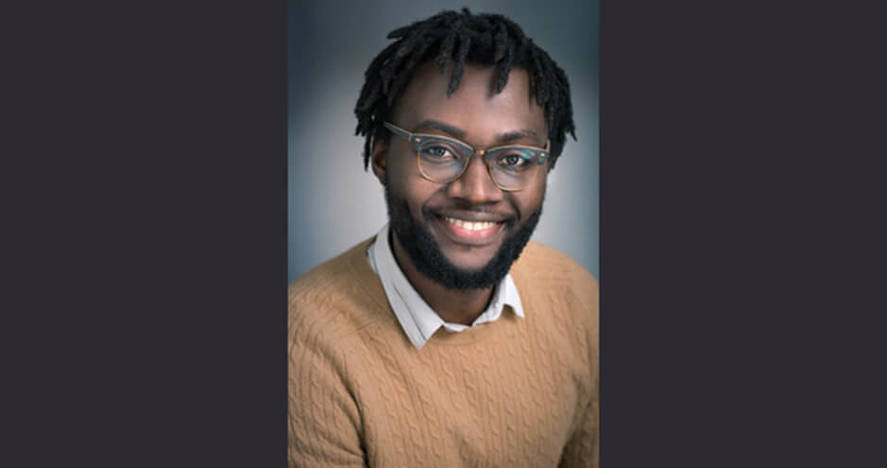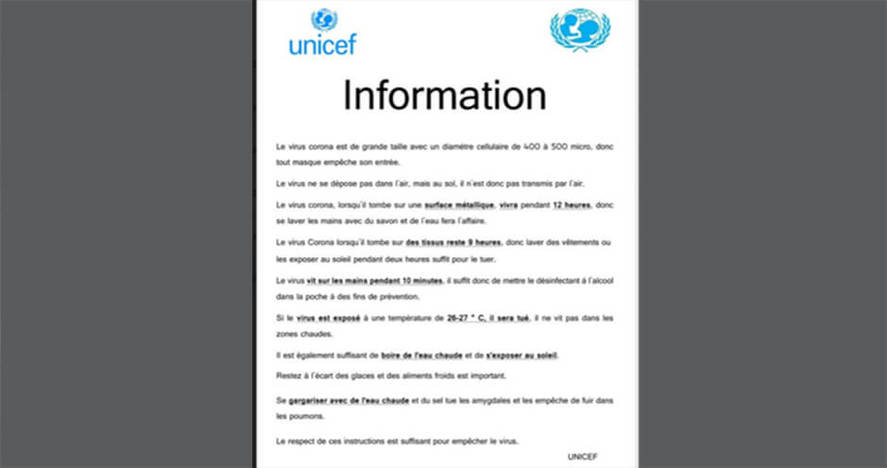HEC Paris Student Tackles Fake News
HEC MBA student Steve Tchuente spearheaded a successful 48-hour drive to win the prestigious MIT Hackathon, this year devoted to combating COVID-19 in sub-Saharan Africa. His AccuroLab platform was one of a dozen winners in the “Flattening the Curve” category. Since the May 3 success, the Cameroonian is juggling his MBA studies with this startup designed to challenge fake news on the Internet with shareable verified information.

(© memyselfaneye – Pixabay.com)
Back in February, WHO Director General Teodros Andhanom Ghebreyesus told a global audience that COVID-19 harbored a threatening partner. He labeled it “infodemic”, a term first used in 2003 in relations to the SARS outbreak, and warned: “Fake news spreads faster and more easily than this virus, and is just as dangerous.” Teodros then made an appeal: “This is a time for facts, not fear. This is a time for rationality, not rumors.”
The call resonated with HEC MBA student Steve Tchuente. His family members in Yaounde, Cameroon, were among the thousands receiving, sometimes disseminating, documents on social media that mixed dangerous advice with fantastical rumors. “(My mom) was doing what comes naturally to everyone,” he told the HEC Paris MBA News website, “sharing messages from trusted friends with all her contacts.”
AccuroLab is Born
But Tchuente wasn’t the only HEC’s student witnessing firsthand such fake news going viral. “Oh, this is a global phenomenon, not just African,” he insisted, talking from the semi-confined comfort of his Paris apartment. The former consultant reached out to fellow-MBA students in the 2021 cohort to gauge their experiences and within days collected over 20 testimonies from as far afield as Brazil, India, Nigeria, the USA and Morocco. “They sent in their experiences, which will feed into my project of creating a bigger testing ground, bringing in testimony from the expat community.”
What Steve Tchuente labels “project” is part of a platform which won one of the MIT Hackathon awards on May 3. Some 1,500 applicants from over 100 countries vied for the prestigious prizes over a weekend, molding a proposal which, in the words of the MIT organizers, would “develop innovative solutions that can help address the COVID-19 crisis.” In the course of the 48-hour sprint, Tchuente teamed up with Moroccan Tarik Fathallah and Ghanaian Marilyn Osei to create the prototype of AccuroLab, a smartphone-based messaging system using simple AI algorithms to short-circuit fake news. “No one application exists that Africans can use to fact-check directly through popular social media platform like WhatsApp or Facebook,” explained product designer Marilyn Osei from her home in Austin, Texas. “We’re tapping into a potential market of 340 million smartphone users in West and Sub Saharan Africa,” added Tarik Fathallah, a public health innovator based in New York, “and this number is projected to swell to 670 million users by 2025.”
Expanding the Team
This was Steve Tchuente’s first-ever experience of a hackathon sprint, which is still available on Youtube (his team’s presentation starts at around 40’). “I was encouraged to experiment and open up to new initiatives during the COVID-19 lockdown by Thierry Voiriot who is my mentor at the HEC TEC Mentorship Program (Ed., a program reserved for 10% of the school’s top MBA students). Thierry told me that all crises comes with its range of opportunities. ‘Opportunities,’ he said, ‘are there to learn and grow as a human-being but also to have an impact on our society.’ I seized on the idea, but I never quite expected this to take off as quickly as it has.”
Riding on their hackathon success, the trio garnered the backing of Just One Giant Lab and hired two extra hands, Nana Kwame Owusu (an Austin-based Machine Learning/App developer) and Paul Dakum (a Nigerian data scientist). “Both are vital for our expansion and knowhow. Paul will also provide the on-the-ground data and awareness from his base in the Nigerian capital of Abuja.”
First Prototype in Early June
The challenges for the young startup are daunting. “In Africa, the COVID-19 crisis has nurtured an exponential increase in fake news.” Tchuente shared a few examples: “Drinking bitter gourd juice cures coronavirus,” advised one Internet blogger. “Eating cabbage increases the stay of the virus in your body,” claimed another. Below an official UNICEF banner, there was even: “To kill (the virus), you only need to drink hot water and stand in the sun.” The author recommended to stay away from ice cream “and eating cold”.
Since the hackathon, Steve Tchuente and his fellow-creators have been working nonstop on the first iteration designed for WhatsApp and its huge outreach. “We’re shooting to start a prototype by June 5. We want to have a frictionless product, using a cloud-based messaging application whereby users can easily fact check incoming text messages. This is achieved by mapping content against a list of verified sources and delivering content-related and verified information cards to the consumer.”
These sources are multi-layered, ranging from global brands like the WHO and Institut Pasteur, to regional health organizations. Their information is merged together and labeled to guarantee authoritative information from recognized sources. “We are a small company, so we can only then encourage users to explore further before sharing controversial or questionable information.”
Juggling Studies and Entrepreneurship
As a BBC investigation recently underlined, the human cost of unverified news continues to haunt authorities and medical bodies worldwide. “This is where we hope we can make a real impact,” insists Tchuente. “As a tool, our platform provides governments and health organizations with a channel to disseminate written and graphical content to help users of developing countries to build up new critical thinking behaviors when analyzing news.” With illiteracy still touching a third of the population in Sub-Saharan Africa, the platform will also provide visual assistance to track down false claims.
As a former CIO Advisory Consultant in both French and Canadian firms, Steve Tchuente has already known many challenges in his young career. But few quite compare to the current engagements, as he juggles the rigors of virtual MBA learning and the expansion of his startup. The former involves eight hours of online classes a day and three papers a week. The latter demands round-the-clock explorations with his four business partners on three continents. “None of us are sure where AccuroLab is taking us. Maybe, by the end, we’ll have something up and running. Or, perhaps, it will be blocked by some government or by lack of funds. But our drive to make a social impact is so enriching that we feel we have already got something out of this adventure.”

